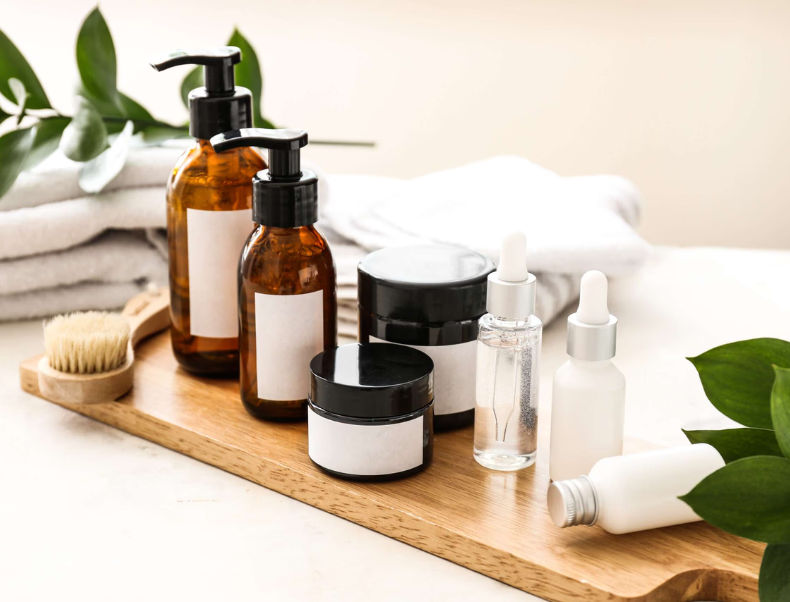Top 10 Sustainability Trends in Personal Care Products

Sustainability is a growing concern for consumers who are seeking products that align with their environmental values. This growing demand has led to innovative and sustainable product development. Here are the top sustainability trends for personal care products:
1. Compostable
Compostable packaging and products are gaining popularity as consumers seek alternatives to traditional single-use plastics. These materials break down into natural elements when composted, reducing waste and environmental impact. Composting is a popular waste diversion strategy that can include lawn clippings to takeout containers. The organic material is repurposed and turned into nutrient dense soil. The soil can be used in gardens and farms rather than decomposing in landfills and releasing emissions. However, successful implementation requires consideration of local composting infrastructure for consumers.
2. Post-Consumer Recycled (PCR) Materials
The integration of post-consumer recycled materials into packaging and product designs is becoming increasingly common. This reduces the demand for virgin materials (raw materials) and helps divert waste from landfills. The process to extract virgin materials can be environmentally intensive such as negatively impacting biodiversity and soil health and may have high energy and water usage. Repurposing old materials through recycling can help avoid this intensive stage. Similar to composting, the process allows materials to be reused rather than sit in landfills and decompose (very) slowly.
3. Plastic-Free
With plastic pollution being a significant environmental concern, many personal care brands are phasing out plastic packaging altogether. They’re using alternative materials like glass, metal, or paper products. Consumers may have negative impressions about plastic and providing alternatives may capture the attention of new customers. Additionally, glass, metal, or paper products can be reused, repurposed, and recycled.
4. Waterless
Waterless products, like solid shampoos and cleansers, are gaining traction as consumers seek concentrated formulas with less water in production and use. These products are also lighter and smaller to transport and reduce packaging requirements. Instead of a large plastic shampoo bottle, consumers may choose a bar that yields the same results and less packaging. One benefit is significant reductions in transportation costs by reducing the weight and space of the product.
5. Refillable and Reusable
Refillable packaging options are increasingly common, allowing consumers to replenish their products with pouches or cartridges instead of new containers. This reduces packaging waste and encourages reuse. The initial purchase may include a bottle which can then be refilled using tablets, gels, or other concentrates. Like waterless products, this can lower transportation costs by reducing the weight and space of the product. It also eliminates the cost of production for packaging of the product by allowing the customer to reuse it.

6. Sustainable Materials
Sustainable materials like bamboo and hemp are being used in personal care products and packaging. They sought for their renewability, biodegradability, and low environmental impact compared to conventional materials. Consumers are moving away from conventional materials that may contain chemicals and environmentally intensive processes to produce. They are seeking materials that are known to have minimal impact or even a positive impact on the environment. Products that use materials that are renewable and don’t degrade the environment are appealing to consumers aiming to reduce their own carbon footprint.
7. Plant-Based
Plant-based ingredients are being favored over synthetic alternatives in personal care formulations. These ingredients are often more sustainable, biodegradable, and less harmful to ecosystems. Plant-based ingredients can be sourced with lower environmental impact as well as eliminate ethical concerns that consumers may have surrounding animal based ingredients.
8. Natural and Organic Ingredients
Consumers are gravitating towards products made with natural and organic ingredients, which are perceived as safer for both the body and the environment. Brands are responding by formulating products without synthetic chemicals and harsh additives. Consumers want to ensure that the products they use are healthy for their bodies and for the environment. Risk of contaminating water sources, negatively impacting soil quality, or harming biodiversity due to unnecessary chemicals may turn consumers away.
9. Carbon Neutral or Net Zero
Achieving carbon neutrality certification is a priority for many personal care brands, who are implementing measures to reduce carbon emissions throughout their supply chains and offsetting the remainder through initiatives like reforestation projects or renewable energy investments. Brand identity is important for business and carbon neutral or net zero certification is one way that companies can enhance their brand identity. This allows customers to easily identify brands that share their sustainability values.
10. Low-Impact Production Processes
Brands are investing in manufacturing processes that use less energy and water, produce fewer emissions, and generate less waste. This can include the use of renewable energy sources and closed-loop water systems. Increasing resource efficiency is not only environmentally friendly, but can also help companies reduce operating costs. A lower dependency on finite resources can increase the resilience of a company and lead to financial stability while also reducing environmental impact and gaining customer loyalty.
Leading the Way to a Sustainable Future
The personal care industry is undergoing a transformation towards sustainability, driven by consumer demand for environmentally friendly and socially responsible products. From innovative packaging solutions to plant-based formulations, brands are embracing these sustainability trends to minimize their environmental footprint while meeting the evolving needs of conscientious consumers. By prioritizing sustainability throughout their operations, personal care brands can play a pivotal role in fostering a greener and more sustainable future.
At CarbonBright, we specialize in developing innovative solutions that enable organizations to conduct Life Cycle Assessments (LCAs), quantify their emissions, and meet stringent regulatory requirements. By partnering with CarbonBright, organizations can achieve a more efficient and cost-effective solution compared to traditional methods. Our scientifically-based approach, aligned with industry standards, ensures accurate and credible results that support your journey towards sustainability and compliance with emerging climate action standards.
Contact us to learn more about how we can help you accelerate your sustainability journey and meet the complex requirements of Life Cycle Assessments (LCAs).



